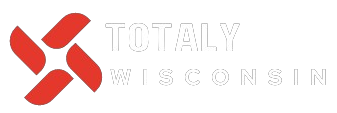Kyle Rorah, 35, serves as Ducks Unlimited’s director of public policy for the organization’s Great Lakes/Atlantic region and leads DU’s government work in Minnesota, Wisconsin, Michigan, Ohio, Kentucky, Indiana, Illinois, Iowa and Missouri.
In this position, Rorah works closely with DU volunteers and members, elected officials, other nonprofit conservation organizations, and state and federal natural resource agencies to support both legislation and administrative actions that promote wetland restoration based on science management of wild fauna and flora and their habitats, as well as the heritage of waterfowl hunting.
Rorah joined Team DU in 2016. He currently lives in Ann Arbor, Michigan with his wife Shannon.
Outdoor News: What led Kyle Rorah to this particular career with Ducks Unlimited and what has given you the most satisfaction in the job you do every day?
Rora: In 2011, a year after completing my bachelor’s degree, I met an experienced fisheries biologist in South Lake Tahoe, California, who had decided mid-career to study environmental law. When asked why, he explained that no matter how much good science he produced about an ecosystem of interest, it meant little unless it was translated into good public policy that guides how people will interact with resources in the future.
He inspired me that day and from that moment on I decided to change my professional focus to the environmental policy arena and here I am.
ON: What are the current greatest threats to wetland loss in the Great Lakes/Atlantic DU region? How might the recent Clean Water Act ruling – December 2022, I believe – impact wetlands in your region?
Rora: DU’s Great Lakes/Atlantic region is geographically immense, spanning 21 states, so the threats are many and varied. Whether it’s legislative attacks on state wetland conservation laws in a state like Indiana or overzealous regulatory behavior by federal agencies in a state like Iowa that actually hinders our progress in restoring wetlands, sometimes we find ourselves that both sides get caught up in it.
Ultimately, I believe the greatest threat to wetlands is human apathy and lack of understanding of what these systems do for society. DU is working strenuous to change the hearts and minds of both the public and elected officials to improve wetlands competency.
ON: What are one or two things that DUs and other conservationists can do to influence policies that benefit waterfowl?
Rora: Get to know your state representative and senator. I’m not saying you have to invite them to dinner, but at least try to attend a local coffee or other event close to home and let them know who you are and that you care about wetlands and waterfowl.
You want them to know that you are a voting duck and that they can turn to the conservation community for aid in solving problems related to natural navigation resources.
ON: What aspects of the bill will be most critical to waterfowl as the upcoming federal Farm Fill Act rolls out later this year? Also, are there elements not included in the 2018 Farm Bill that could be included in the 2023 version to better aid ducks in your region and elsewhere?
Rora: Well, given that the Farm Bill is the single largest environmental investment that we make as a country every five years, the ongoing efforts to reauthorize the Farm Bill are very critical.
The Wetlands Reserve Easement Program and the Protective Reserve Program are of particular importance for waterfowl. Both programs offer financial incentives to restore and protect wetlands and grasslands that waterfowl need during all stages of their life cycle.
We intend to make several compact but critical improvements to this year’s Farm Bill, including reducing the administrative burdens associated with some of these conservation programs, greater promotion of wildlife-friendly practices under the Environmental Quality Incentive Program, and restoring incentives under the continuing CRP.
ON: How do water quality issues affect ducks, and what are possible policy solutions?
Rora: Wetlands improve water quality in our lakes and streams because they act like nature’s kidneys, filtering nutrients and sediments that might otherwise act as pollutants. I believe that talking more about the importance of wetlands from a water quality perspective is a key element of an effective public relations strategy that increases the public importance of wetlands.
This, in turn, sets the stage for generating public support for increased wetland conservation spending by state legislatures, Congress, and corporations, as well as overall improvements in public policy regarding wetland conservation.
All of this ideally results in more wetlands in the landscape that support waterfowl and other wildlife.
ON: Your region accounts for approximately 45% of all DU members.
How does DU recruit fresh members, and how does “outnumbering” translate into your and DU’s effectiveness on the public policy front?
Rora: DU continues to innovate to capture the attention of fresh audiences and build relationships with fresh communities. One fresh partnership I’m very excited about is Future Farmers of America. FFA membership represents the next generation of farm owners, and they are undoubtedly the most critical part of society in providing our waterfowl with the resources they need to thrive.
Most high priority waterfowl states and their landscapes are privately owned. Therefore, land exploit decisions made by private citizens are of great importance, so if we can connect with the people who will one day be the operators and managers of much of the country’s land, waterfowl will have a much greater chance of receiving care in the future.
ON: The number of duck hunters has declined in Minnesota and other states. Are you and DU considering policy changes that could boost hunter numbers and thereby raise money (through license sales, stamp sales, etc.) to improve waterfowl habitat?
Rora: If all duck hunters simply replaced themselves by mentoring someone else, we would not see a regression in participation. I don’t know if there is a political solution to the issue of passing on heritage. What it comes down to is that each of us current waterfowl hunters takes responsibility for our own destiny and shares the necessary skills, ethics and passion with someone who would not otherwise get that exposure.
ON: Would you say that DU in this region tends to be responsive to legislation affecting wetlands, or is it actively pushing for positive policy changes in the region’s relevant states?
Rora: We are always actively engaged with issues across the region and strive to lead wetlands conservation policy. That said, inevitably every year we get blindsided by something that puts us on the defensive. But that’s simply the nature of public policy work, so at this stage I expect to see several legislative attacks each year on our wetland resources, hunting heritage, or science-based wildlife management policies.
We’ve been guilty of crime a lot lately – working with lawmakers to appropriate fresh and increased levels of wetland restoration spending, improving wetland mapping to better understand what wetlands we have and should protect and restore, and adapting waterfowl stamp duty structures to take into account multi-year inflation and reduced purchasing power of these critical funding streams for wetland and waterfowl conservation.
ON: What do you like most about waterfowl and wetlands? What fuels your passion for these things? Do you have a favorite place to hunt ducks?
Rora: Waterfowl and their migratory behavior are one of nature’s greatest phenomena. I just marvel at what they do and where they go throughout the year. This and their brilliant and iridescent appearance really sets them apart from virtually all other wildlife in the Midwest, which I think is frigid. When it comes to wetlands, they are like the mini-Serengetis that dot the land here in the United States, simply connecting with an unparalleled diversity of plants and wildlife. You just can’t beat the sights and sounds of the wetlands at dawn.
I’m drawn to these environments because I just can’t aid but want to be in them. Nature feeds my soul and is my most valued teacher about myself and life beyond. My favorite place to duck hunt is where I duck hunt. I love it all.


